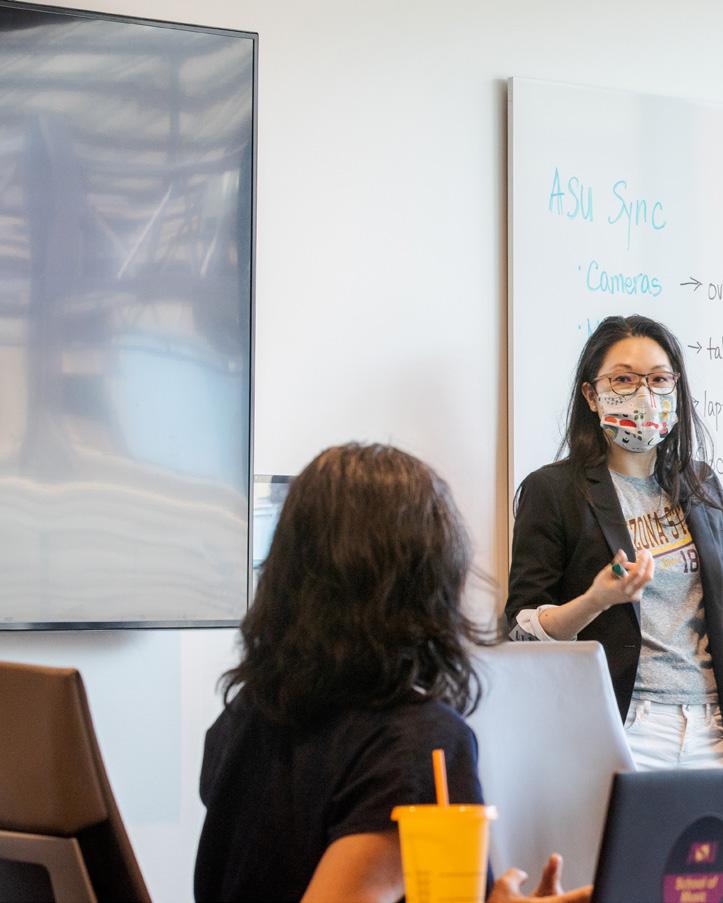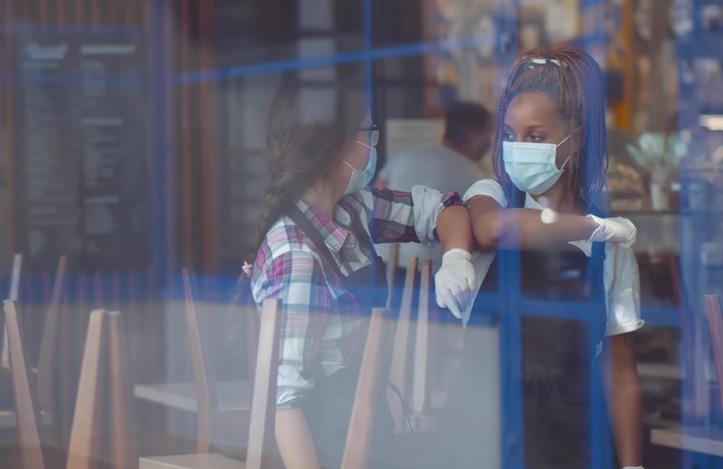
3 minute read
03: Helping Arizona’s economy thrive
After experiencing record-shattering job losses and contraction during the pandemic, Arizona faces pressing questions about its future economic rebound. Prior to the pandemic, Arizona had one of the strongest economies in the nation in terms of population growth and job creation. But the state rapidly went from one of the most thriving economies in the nation to double-digit unemployment.
ASU researchers are exploring the economic consequences of the pandemic and the impact of various policy responses. In addition, groups across the university are helping businesses of all sizes to adapt and thrive.
Safely returning employees to the workplace
As businesses reopened or expanded from a skeleton crew, a pressing question remained: How can we safely return employees to the workplace during the COVID-19 era? ASU offers a reopening service that consists of rapidly assembled teams to help businesses ramp back up safely across several areas, including COVID-19 testing, sanitation procedures and developing technology like phone apps to manage new kinds of customer relations. In addition, ASU’s College of Health Solutions and the World Economic Forum, with support from The Rockefeller Foundation, provide the very latest information through the COVID-19 Diagnostics Commons. The interactive hub for the global community gives access to up-to-date information about testing options and a place to share knowledge and practices for safely bringing back and keeping employees in the workplace.

— Mara Aspinall, Founder of Health Catalysts Group and Professor of Practice at ASU’s College of Health Solutions
Helping federal agencies pivot in a pandemic
When the spread of COVID-19 shifted from a looming threat to a full-blown pandemic in March 2020, ASU’s Center for Accelerating Operational Efficiency sprang into action. As a U.S. Department of Homeland Security Center of Excellence, CAOE helps some of the agencies charged with responding to the pandemic plan for and overcome anticipated — and unanticipated — challenges. The center shifted the focus of an ongoing project to address expected supply chain challenges around medical equipment and vaccines. It also added two new projects to help the government and others forecast the economic consequences of the pandemic, and related policy responses, based on different scenarios.
Exposing COVID-19 phishing scams
The ASU Global Security Initiative’s Center for Cybersecurity and Digital Forensics tracked various aspects of the internet from January to May 2020 to understand how criminals use the COVID-19 pandemic to increase the effectiveness of phishing attacks designed to steal user credentials. The preliminary study found that overall phishing has increased, and attackers are leveraging COVID-19 to increase the effectiveness of their attacks. An example includes a phishing website camouflaged as a U.S. Centers for Disease Control and Prevention COVID-19 donation webpage.

— Ross Maciejewski, Director of the Center for Accelerating Operational Efficiency

Aiding small businesses during the economic fallout
Companies and industries of all sizes were battered by the upheaval brought about by the pandemic, with small businesses bearing the brunt of it. The J. Orin Edson Entrepreneurship + Innovation Institute leveraged its considerable resources and network to aid small businesses during the economic shift.
Edson E+I’s efforts included providing mentors and subject matter experts to the Arizona Commerce Authority’s Small Business Assistance response, serving on the COVID-19 Small Business Task Force for the City of Peoria, and assisting the City of Phoenix’s Economic and Community Development team in sourcing contact information for thousands of registered businesses for direct outreach. Edson E+I is also using a $50,000 grant from the Santander Consumer USA Foundation to support entrepreneurs in the mobile food entrepreneurship program, Prepped.
ASU rapidly established services to help businesses, government agencies and individuals to keep our economy healthy and resilient.










